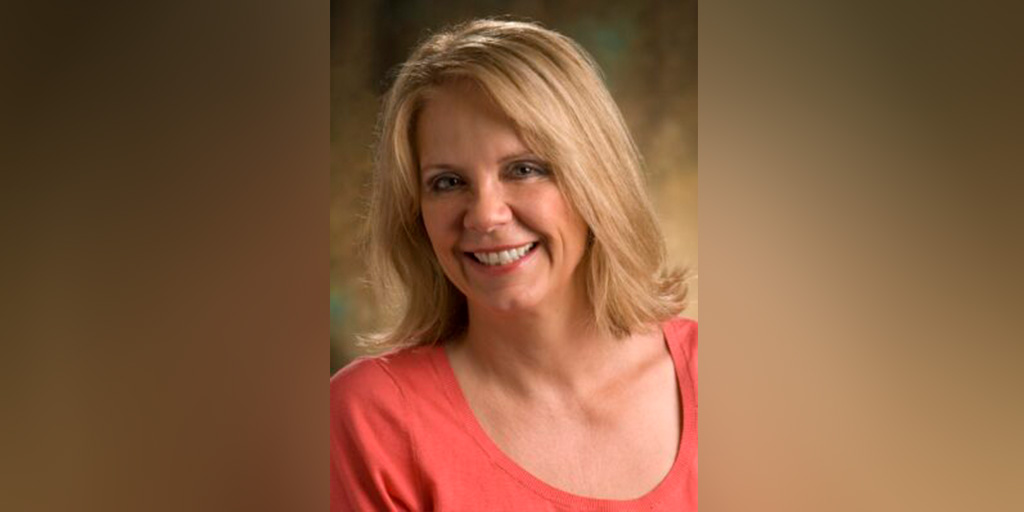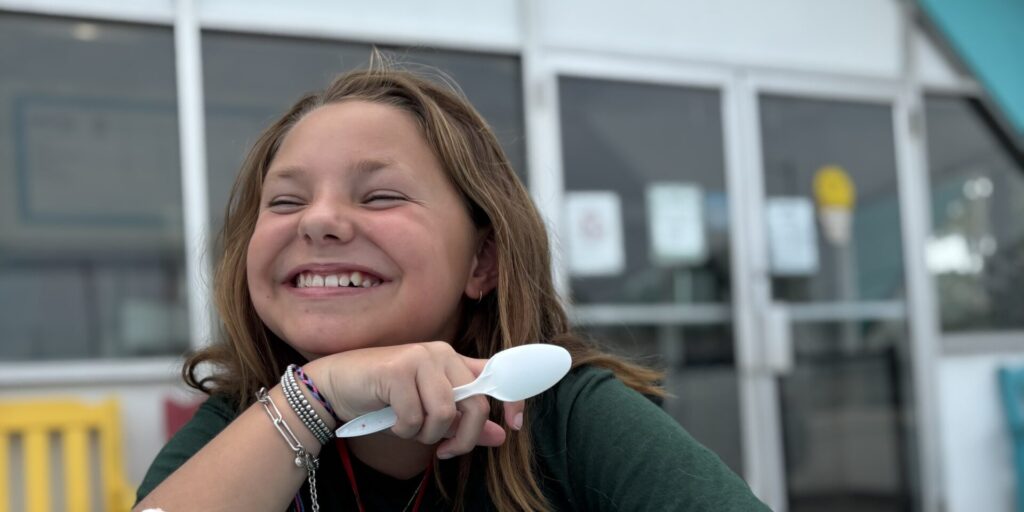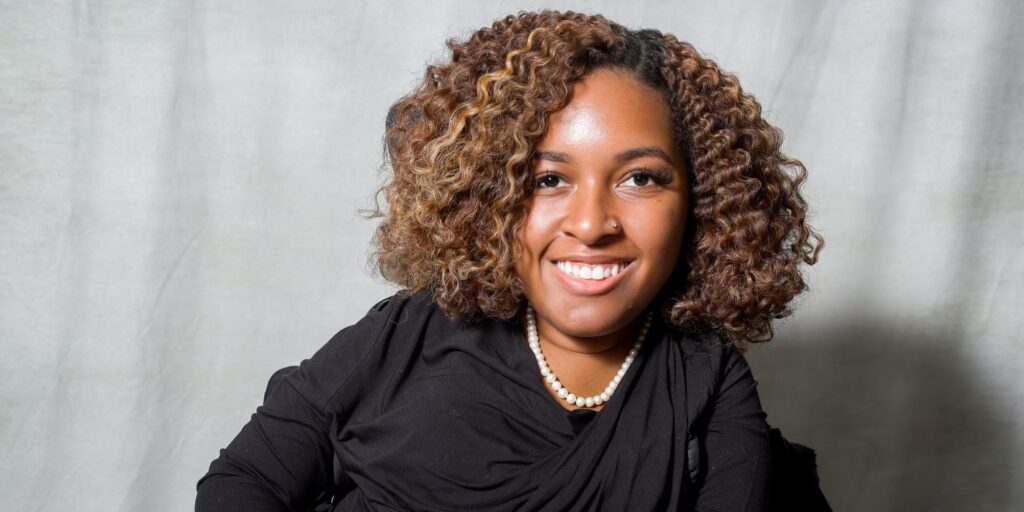
Who’s On Your MDA Care Center Team?: Pediatric Social Workers
By MDA Staff | Thursday, August 20, 2020
At more than 150 MDA Care Centers nationwide, kids and adults living with neuromuscular disease (NMD) have access to multidisciplinary care teams made up of different specialists who can coordinate in one place on an appointment day to optimize a complete care plan. Included on these teams are allied health professionals and social workers who can support individual treatment and planning aspects of daily life with an NMD. In this multi-part blog series, Who’s On Your MDA Care Center Team?, we sit down with some of the allied health professionals working with Care Center teams to find out more about their roles, when patients should loop them into care plans, and what advice they have for those adjusting to life with NMD.
Diane Murrell, MSW, LCSW, is a clinical social worker in the Blue Bird Circle Clinic for Pediatric Neurology at Texas Children’s Hospital (TCH) in Houston and the dedicated social worker for the hospital’s MDA Care Center. She is also the author and illustrator of three children’s books and has a blog that addresses concerns related to bullying and development of empathy on the TCH website. Her interests in research include transition from pediatric to adult healthcare, spinal muscular atrophy (SMA), the impact of loneliness on a parent whose child has a chronic illness or disability, and exploring ethics in healthcare. She founded and is volunteer manager for the Houston Fireballs power soccer program and is the director of the nonprofit Texas Power Soccer.
As a social worker, what do you do? What is your role within the MDA Care Center multidisciplinary team?
My role on the Care Center team is to help families with everything nonmedical, and, as you can imagine, there is a tremendous amount that affects the health and the psychosocial aspects of life that is nonmedical. Social workers consider insurance plans, school accommodations, government programs, parents’ jobs, the workplace, an accessible home, and other resources families may not be familiar with. We love to sit down and learn everything about you, your strengths, and your needs.

At TCH, our Care Center director, Dr. Tim Lotze, says one of the social worker’s greatest strengths is to help translate what a family wants to the medical team and to help translate what the doctor wants to the family. Families may be afraid to speak up, and providers may sometimes speak in too much medical jargon or offer too much information to remember. When one or the other is scratching their head, social workers help. We also provide therapeutic support to the patient and family as they adjust to learning about a new diagnosis or a new stage in the disease that may seem overwhelming. The social worker helps families process their feelings and anxieties in a safe space.
Finally, we help with those gritty details that make life run more smoothly. For example, a doctor may want a pediatric patient to receive a treatment once a week every week. If the child’s parents work, they might need forms to take to their employer requesting time off. A student may need an explanation for school and a plan. A parent may lose money by being off work, and the family may need financial support or help with transportation. We ensure the provider’s plan for healthcare is doable for the family, financially, with their schedule, and with the needs of the other family members, work commitments, etc.
What are some of the issues you see affecting children and their families?
I think the biggest concerns I assess for are:
- The emotional adjustment to a diagnosis for parents, patients, and siblings. A new diagnosis may be traumatic to receive, and so it is important the family has a strong connection of trust and rapport from the first clinic visit and they know they are not alone on this journey. We normalize those feelings of shock and help them process emotions, and we connect them also to MDA.
- The continuing impact of the disease on a person or family psychologically, financially, and relationally. Social workers are there to support each family member and identify their strengths and empower them. We help to mitigate the effects living with a disease may have on life.
- The physical adaptation of adjusting to a diagnosis. We strategize with instructional staff so a person in a wheelchair is not socially isolated, and we promote inclusion. We help families obtain the equipment they need and/or an adaptive van. Practical help is as important as psychological support.
- Bullying. We always screen for bullying at school to prevent damage to a child’s self-esteem. On the opposite side of this, I know many parents silently wonder, “Will my child have friends?” Yes, they will! Social workers can strategize with parents and with schools to encourage relationship building.
- Fear of the future. Every protective instinct wants us to prepare for the future, but I remind families it is the job of social workers and the multidisciplinary team to share the parental task in looking ahead and anticipating what will be needed next.
When should families involve a social worker in their treatment plan? What questions should they ask, and how can they help best inform you of what they need?
I tell my families that the MDA social worker is available for those days in between clinic visits, and they do not need to wait for a multidisciplinary appointment to speak with us. Important items we want to be contacted on are any change or loss of insurance and food or bill insecurity. Ask if there may be government programs or charity support available. There are many forms and letters — for school, for Family and Medical Leave, grants, housing accessibility, immigration matters, and so on — we can help with.
It is important to contact your social worker if you are feeling depressed, or if new stressors have been added to your family. Let a social worker or a nurse know if you go into the hospital so we can alert your medical team. We also like to hear if something special happens so we can share in the joy. And always tell us if there is any barrier to you following the doctor’s treatment plan or keeping an appointment. We are available to help you find solutions that fit your family and to support you through medical decision making or other life choices.
How can social workers help children and parents thrive?
We can help families thrive by building a relationship of trust so you know you can approach us any-time. We have so much respect for the courage of the families we see. We understand you are strong and vulnerable at the same time, and together we will work with you to realize your goals.
What kind of follow-up or long-term social worker assistance should families plan for?
Transition — getting ready to move from pediatric healthcare
to adult healthcare and, along with it, learning how to “adult.” When we think
of transition to adulthood, we think of autonomy
(the ability to think for yourself and make decisions about your body and your
life). We need to encourage young people to gradually take charge of
their lives. Taking charge with your mind increases even when, in some cases,
the body may become more dependent for physical help.
Long term follow-up involves the patient, their family, and the social worker having a lot of tough discussions, including topics such as advance directives for end of life (which everyone in the family should complete for themself), how to find and manage attendant care (whether in your home or at college), education on financial resources, and how to stay connected socially with others and continue to grow.
What advice do you have for families of children living with neuromuscular disease?
My advice is to walk that tightrope of living in today and not in tomorrow. It is extremely difficult when you have a child with any rare disease not to live in tomorrow. You want to be prepared because you have learned hard things can happen to good people. It is a balancing act on a narrow rope over a chasm, and I hope it helps to know that the medical team takes on the responsibility to look ahead for your needs, to keep up with the research, and to keep up with the therapies and treatments at every stage of your life.
If I could say only one thing it would be this: Please allow us to walk alongside you on this journey and do not feel that you are alone. We want to walk with you.
Disclaimer: No content on this site should ever be used as a substitute for direct medical advice from your doctor or other qualified clinician.




